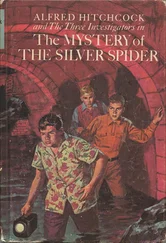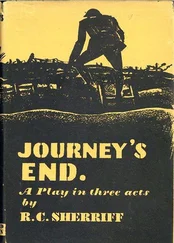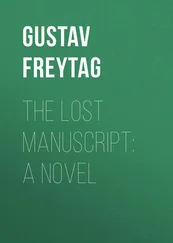Роберт Шеррифф - The Hopkins Manuscript
Здесь есть возможность читать онлайн «Роберт Шеррифф - The Hopkins Manuscript» весь текст электронной книги совершенно бесплатно (целиком полную версию без сокращений). В некоторых случаях можно слушать аудио, скачать через торрент в формате fb2 и присутствует краткое содержание. Год выпуска: 2018, ISBN: 2018, Издательство: Penguin Books, Жанр: sf_postapocalyptic, humor_satire, на английском языке. Описание произведения, (предисловие) а так же отзывы посетителей доступны на портале библиотеки ЛибКат.
- Название:The Hopkins Manuscript
- Автор:
- Издательство:Penguin Books
- Жанр:
- Год:2018
- ISBN:978-0-241-34908-3
- Рейтинг книги:4 / 5. Голосов: 1
-
Избранное:Добавить в избранное
- Отзывы:
-
Ваша оценка:
- 80
- 1
- 2
- 3
- 4
- 5
The Hopkins Manuscript: краткое содержание, описание и аннотация
Предлагаем к чтению аннотацию, описание, краткое содержание или предисловие (зависит от того, что написал сам автор книги «The Hopkins Manuscript»). Если вы не нашли необходимую информацию о книге — напишите в комментариях, мы постараемся отыскать её.
The Hopkins Manuscript — читать онлайн бесплатно полную книгу (весь текст) целиком
Ниже представлен текст книги, разбитый по страницам. Система сохранения места последней прочитанной страницы, позволяет с удобством читать онлайн бесплатно книгу «The Hopkins Manuscript», без необходимости каждый раз заново искать на чём Вы остановились. Поставьте закладку, и сможете в любой момент перейти на страницу, на которой закончили чтение.
Интервал:
Закладка:
This gave me very little comfort, and as I miserably followed the doctor into that big, familiar lecture room I felt at once a subtle difference from anything that I had known in that room before.
At other times you would have heard the high-spirited ring of conversation before you were halfway up the stairs – the jovial laughter and greetings of old friends. At other times not more than half the members, about fifty of us, would meet – but tonight I think every member was present, every one of the 109 of us, and although the room was filled there was something uncanny in its quietness.
Usually we entered freely, bringing our friends if we so desired. Tonight, for the first time in my experience, Humphrey Tugwall, our Secretary, stood beside the door and requested us to show our cards of membership. He scrutinised each of us and ticked our names upon a members’ list before we were permitted to enter.
Instead of the carefree ebb and flow around the room, members were gathered in groups together, talking almost in whispers.
The reader can well imagine what I suffered as the clock ticked off the minutes to the hour of six. I had never belonged to any group, or ‘clique’ of members and had always preferred to extend a general good-fellowship to all and sundry. Never in the past had I found myself in want of someone to talk to during this interval between my arrival and the hour of our meeting: but tonight I felt like a leper. I was utterly ignored: utterly alone.
I approached a group in which Walter Archer, whom I knew quite well, was standing. I mastered my feelings and with a smile called out a cheery: ‘Hullo, Archer! – how goes it?’ The man did not even reply – he seemed to look right through me – he did not even grant me a nod of recognition, and I saw that his head was twisted in an endeavour to hear what a doddering old professor was mumbling to a little ring of members.
I went from group to group with the same result: an impulse came to stride out into the night and leave them to their troubles, for they were putting me upon the rack – torturing me before my trial.
But I knew that I must face it like a man. I determined that I, who had the most to suffer and the most to lose, should appear the calmest of them all. I strolled to the window and nonchalantly lit a cigarette, but nobody seemed to notice this gesture of defiance.
The street beneath me was almost deserted in the oasis that lies between the departure of the day’s business and the arrival of the night’s pleasure. A full moon, silver and aloof, rode above the rooftops of Drury Lane. I looked at its silly face and hated it again as the cause of all my trouble and despair.
After an eternity – with unspeakable relief, I heard the clock strike six. I crushed out my cigarette and turned towards the room to witness the time-honoured little ceremony that preceded our meetings.
From the private office of the Secretary came three brisk knocks. This was a warning to members to be seated. After the space of a minute, during which members took their places, the door was thrown open and the Secretary appeared, calling out: ‘Gentlemen, the President!’
It was then the duty of members to rise and remain standing until the President had taken his place upon the platform. On nights when a visitor was speaking, the Secretary would also call out: ‘Gentlemen, give welcome to our guest!’, and all would applaud heartily until the visiting speaker, in company with the President, had mounted the platform and prepared himself to speak.
It was a simple, amusing little ceremony of which we were quite proud, and we never failed to carry it through with meticulous attention to detail. Upon this night there was of course no visitor. The President entered alone, followed according to custom by the Committee who took reserved places in the front row.
Even in the Secretary’s voice I caught the note of tension that had pervaded the whole room since I had entered it. By nature Humphrey Tugwall was a bluff, hearty man who played his part at meetings with gusto. But tonight he said: ‘Gentlemen, the President!’ in a thin and hollow voice from lips that were pale and strained.
I began to wonder how much longer my mind could bear this torture – whether I should ever leave this gaunt, ghastly room in possession of my sanity. I had come prepared for an unpleasant meeting. As the member most responsible for the telescope scheme going forward – and in consequence most to blame for its tragic collapse and failure – I was prepared for members to act shyly and self-consciously towards me.
But never in my worst nightmares had I expected to be treated in this dreadful way – as if I were dirt – as if I did not exist.
It seemed wrong that I should even sit amongst my fellow members. I should be in the dock: nay, rather in the condemned cell – for already I knew myself to be condemned. Except for Dr Perceval not a soul had even smiled at me that night.
I had found a place between two members whom I had never seen before. I am sturdy rather than tall, and as we stood there I could not see the President as he walked to the platform. I heard in the silence of those standing members a shuffling of footsteps, then, as the Committee took their places and became still, the solitary tread of one man, the President, as he mounted the steps of the platform.
I judged that he was now beside the reading-table, for there was complete silence for a moment, broken then by the subdued rustle of members seating themselves.
I sat there, cold and limp, completely resigned to my fate. Upon my right, oozing slightly over the edge of his seat, was a large fat man who breathed rhythmically and ponderously through one nostril only – for the intake of air was audible and under great pressure. He folded his fat, warty hands across his waistcoat and began slowly to rotate his thumbs.
I could now see the President quite clearly. He was arranging a sheaf of notes upon the table: he adjusted the green-shaded lamp and glanced around the room.
I had an immense admiration for Professor Hartley. He was not a handsome man upon conventional standards, but his rugged face was full of character and power. I used to think of him as rather like Oliver Cromwell. I should judge that he was in his early fifties, for his wiry, reddish hair was greying over the temples and the strong lines around his mouth were deepening with maturity of thought and responsibility. For the past five years he had held the Burnholm Chair of Astrology at London University and he had done much to popularise the study of the heavens through his brilliant broadcast lectures.
I think the only calmness in the room at that moment lay in the grey pools of Professor Hartley’s eyes. I caught one glimpse of the strained profiles around me – of the lines of rigid bodies sitting upright in their chairs.
The President glanced at us, and then over our heads. He bent forward and whispered to the Secretary who sat to his right, at the foot of the platform. The Secretary nodded, rose to his feet, and all eyes followed him as he went to the back of the room, to the door that led to the stairs.
Quietly he turned the key in the lock and pulled the green baize curtains carefully across the door to subdue any sound that might escape to the outside world.
There was something horrible – something irrevocable in the tiny grating of that key and the thin, metallic twitch of the curtain rings. Never before had I seen it done: not even at the memorable meeting when the telescope was first discussed. I felt trapped. I had no escape. I believe that I should have broken down and screamed if the President’s calm voice had not come to me through the silence.
I remember that quiet, level voice as if it were speaking to me now from the black stillness of ruined London beneath me.
Читать дальшеИнтервал:
Закладка:
Похожие книги на «The Hopkins Manuscript»
Представляем Вашему вниманию похожие книги на «The Hopkins Manuscript» списком для выбора. Мы отобрали схожую по названию и смыслу литературу в надежде предоставить читателям больше вариантов отыскать новые, интересные, ещё непрочитанные произведения.
Обсуждение, отзывы о книге «The Hopkins Manuscript» и просто собственные мнения читателей. Оставьте ваши комментарии, напишите, что Вы думаете о произведении, его смысле или главных героях. Укажите что конкретно понравилось, а что нет, и почему Вы так считаете.












